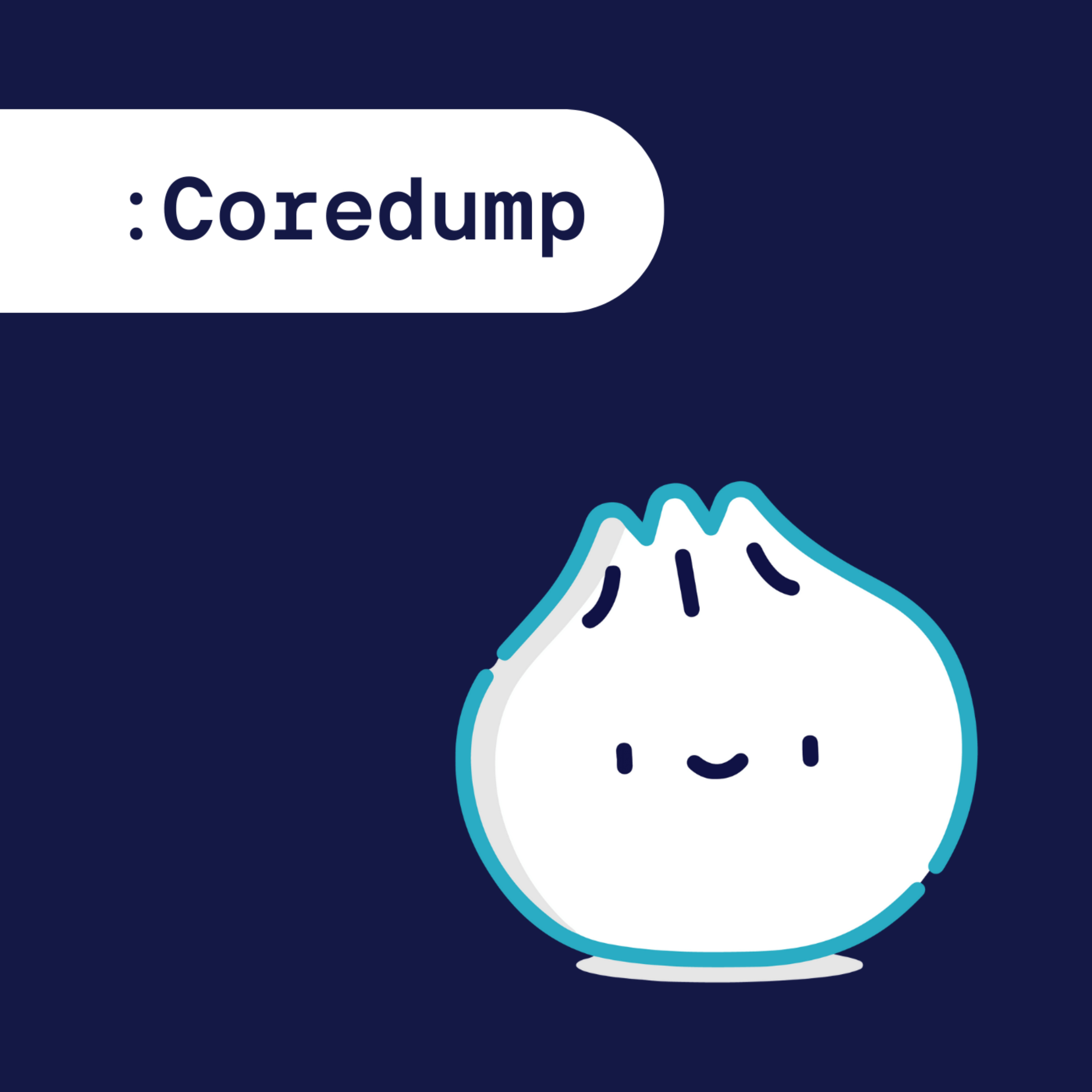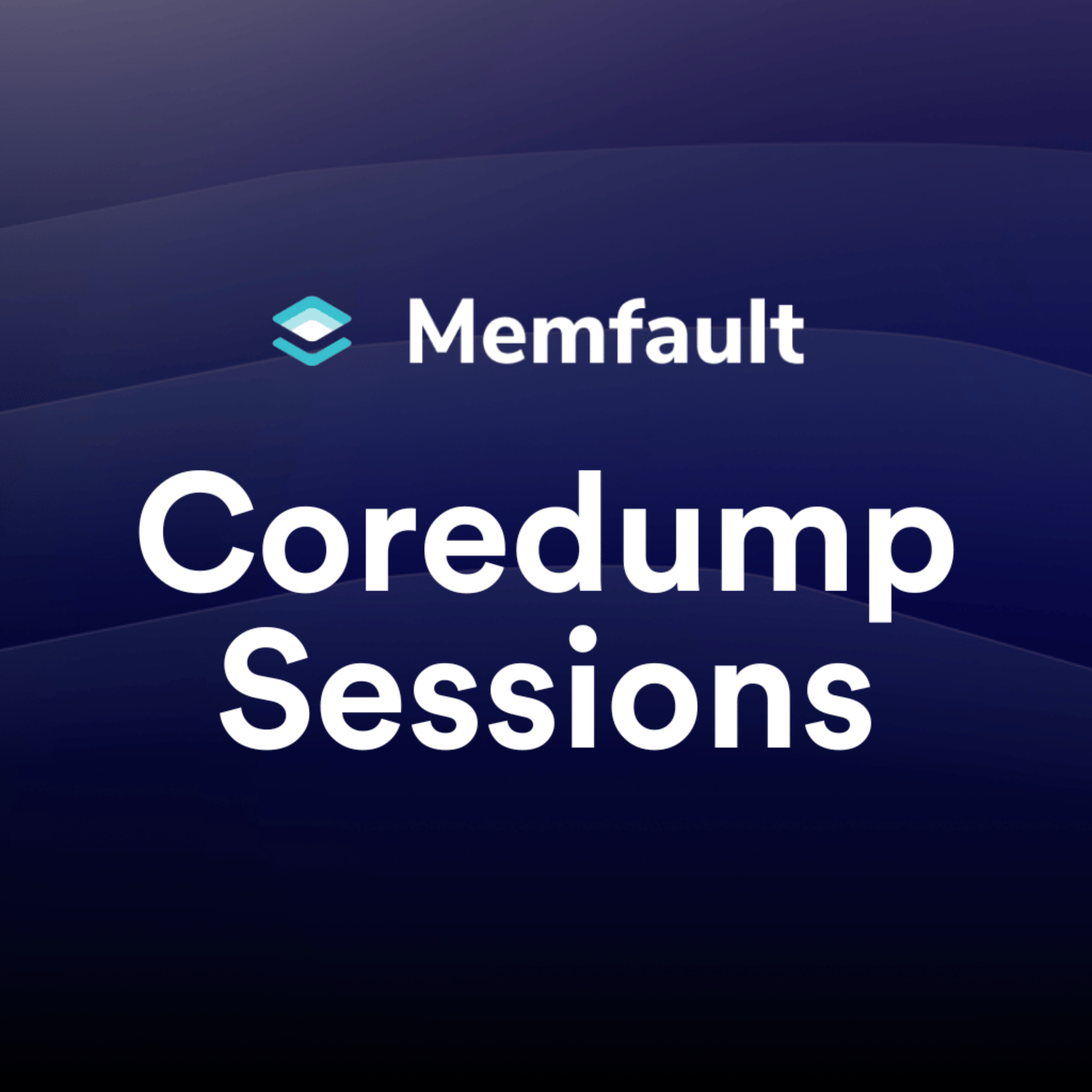Coredump Sessions

Coredump Sessions
Podcast Description
Coredump Sessions is a podcast for embedded engineers and product teams building connected devices. Hosted by the team at Memfault, each episode features real-world stories and technical deep dives with experts across the embedded systems space.
From Bluetooth pioneers and OTA infrastructure veterans to the engineers who built Pebble, we explore the tools, techniques, and tradeoffs that power reliable, scalable devices. If you're building or debugging hardware, this is your go-to for embedded insights.
Podcast Insights
Content Themes
The podcast focuses on various aspects of embedded engineering, featuring topics like open-source firmware, Bluetooth technology, and device scalability, with episodes such as the discussion around the open-sourcing of Pebble OS and its implications for developers and the industry.

Coredump Sessions is a podcast for embedded engineers and product teams building connected devices. Hosted by the team at Memfault, each episode features real-world stories and technical deep dives with experts across the embedded systems space.
From Bluetooth pioneers and OTA infrastructure veterans to the engineers who built Pebble, we explore the tools, techniques, and tradeoffs that power reliable, scalable devices. If you’re building or debugging hardware, this is your go-to for embedded insights.
Summary
In today’s Coredump Session, François and Chris wrap up the year with a special milestone celebration for the 20th episode of the series. They take listeners behind the mic to reflect on how Coredump began, the moments that defined 2025, and the lessons learned along the way. Expect highlights from the year’s most talked-about discussions, bold predictions for what’s ahead in 2026, and the biggest live Q&A yet—where nothing is off the table.
Key Takeaways:
- Why Coredump Sessions started and how the show has evolved over 20 episodes
- The biggest engineering lessons guests shared throughout 2025
- The most surprising device failures and field behaviors teams faced this year
- How firmware teams adapted to fast-changing toolchains and new requirements
- The rise of AI-assisted debugging, testing, and development in embedded work
- How security mandates tightened and reshaped device development
- The recurring theme that real-world conditions rarely match lab assumptions
- What François and Chris learned from producing the series behind the scenes
- What the hosts expect to define embedded systems development in 2026
- The expanded live Q&A format and how the community is shaping future episodes
Chapters:
00:00 Teasers
01:30 Intro/ Welcome
03:35 The Genesis of Core Dump
06:54 Favorite Moments and Lessons Learned
08:45 Clip Reaction: Nick Sinas’s OTA Nightmare in the Snow
12:19 Clip Reaction: Lack of Security at Pebble
16:45 Clip Reaction: Dan Mangum on AI & Engineering
21:50 Clip Reaction: Vatsal at Ultrahuman Talks Always-On Devices
25:29 Clip Reaction: Chad from Gabb Talks Security
30:12 Looking Ahead: Predictions for 2026
35:59 The Rise of AI and Edge Computing
42:24 Evolving Skills for Firmware Engineers
47:01 Security in Embedded Systems
49:01 The Future of Testing in Embedded Development
53:15 Conclusions & Thank Yous
Join the Interrupt Slack
Watch this episode on YouTube
Follow Memfault
Other ways to listen:

Disclaimer
This podcast’s information is provided for general reference and was obtained from publicly accessible sources. The Podcast Collaborative neither produces nor verifies the content, accuracy, or suitability of this podcast. Views and opinions belong solely to the podcast creators and guests.
For a complete disclaimer, please see our Full Disclaimer on the archive page. The Podcast Collaborative bears no responsibility for the podcast’s themes, language, or overall content. Listener discretion is advised. Read our Terms of Use and Privacy Policy for more details.